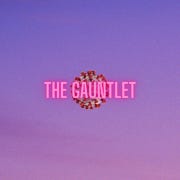15: The Other Name for Disappointment
I’m late to the Andrea Long Chu fan club, currently obsessed with the ‘poetic web,’ and really hecking worried about the state of the world. How about you?
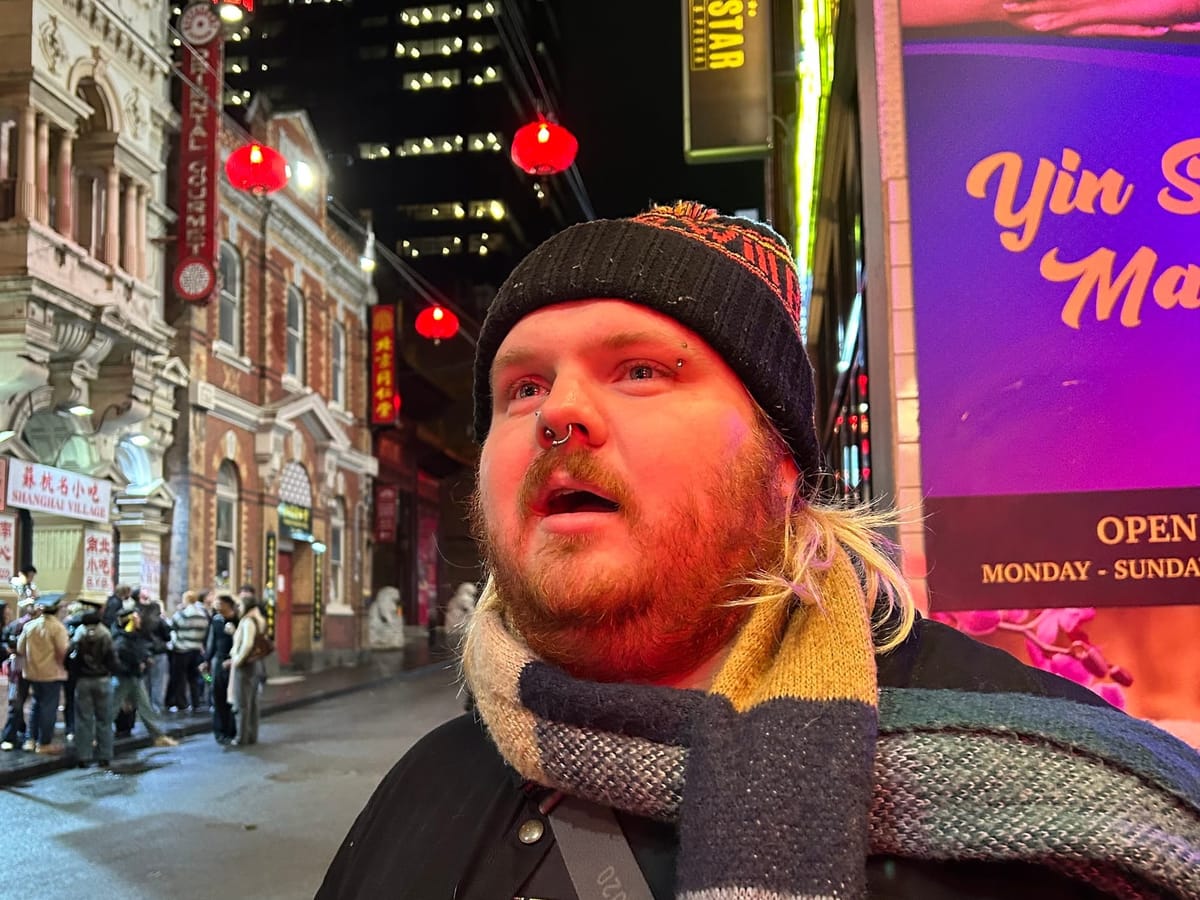
It’s been a pretty wild weak in the news. Instead of panicking, I’ve enjoyed taking it a little slower and getting lost in a pile of articles that I’ve saved up/forgotten about. I think I read about 40 or so articles for this edition. Accordingly, there’s a ton of links for you to delve into this week.
The title for this week’s edition comes from Andrea Long Chu’s essay on transness which she closes with: “The other name for disappointment, after all, is love.” It’s linked down below and it’s a solid read. I hope you find it as 🤯 as I did.
You’re reading In the Round, a newsletter with Melbourne theatre reviews, interesting links, and a little artist diary. Published weeklyish by me.

The Selkie Project was a beautiful-if-impenetrable piece of physical/gig theatre. Loved the AV but overall didn’t do much for me.
Heartbreak Hotel was great!!! Wrote about it in my broadcast channel. Closes this Sunday so get in quick if tickets are still available!
I went to visit an exhibition of Circus of the Oppressed by Textaqueen—an incisive series of illustrations critiquing the mainstream art world’s portrayal of and engagement with POC. I took home a little postcard of one of the works and this very excellent colouring book about prison abolition and community resistance.
Went with some friends to my favourite open-mic, Spelunkin and saw some excellent comedians working through weird and beautiful stuff. Love it.
Ron & Isobel at Motley Bauhaus was fine. It’s kind of a melodramatic dinner party in the wake of the Whitlam dismissal but it’s just a lot of people yelling at each other in kaftans.
Played Photosynthesis for the first time which was a chewy spatial puzzle of a board game about trees competing for light in a forest. It’s very unforgiving but has some lovely design and fun mechanics (the rotating sun is so fun).

I have been continuing my spiral into the rabbit hole that is the poetic web and really enjoyed this interview with artist Jackie Liu about her work.
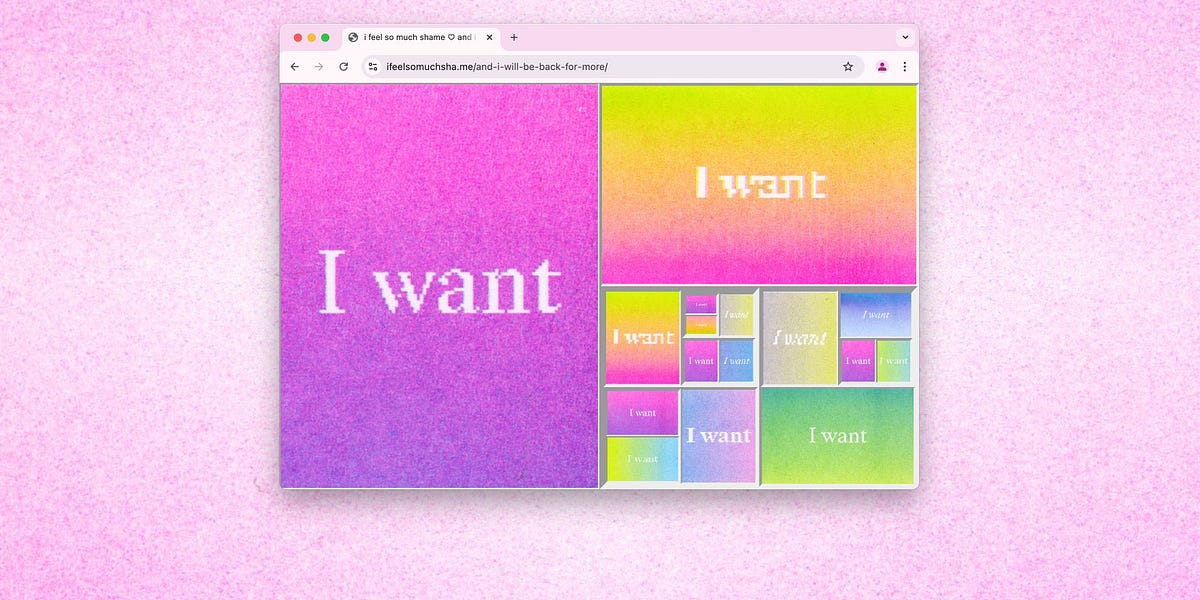
Liu chats about her work i feel so much shame which is kind of like a Rupi Kaur poem about self-worth mixed with a printed website (?). It’s weird but so f*cking cool. (Try it in Chrome on your desktop, definitely not a mobile thing.)
Something I’m thinking about with this project is that I kind of like to deliberately do the hard and arduous things. For this project, I had to really think through every frame, print it out, go through every step myself—bring my body to the Risograph studio to print and scan it and fix all the mistakes. In some ways, I’m trying to celebrate the opposite of vibe coding. Bringing yourself to do the hard work and finding some pleasure in doing that.
I love the way she’s conceptualising her work which brings together the physical world and digital as a rejection of vibe coding, especially in light of all the research coming out about how AI removes our ability to think. How cool is it to see artists reject that and create work full of big feelings and big thoughts.
Reflecting on using the web as an interactive medium for art, Liu says:
I think interactivity can transport you into memories in a more embodied way than maybe just flipping through a traditional comic book, or reading traditional writing. There’s something visceral about digital interfaces that transport you back into time. They’re always so dated, like you can always tell what is 2012 internet versus 2016 versus 2006.
I also loved her Fishin’ for Average Caucasian Boyfriends which is like a game boy game skewering tinder and the way we conceptualise romance in a growth-oriented society. Very beautiful (and loads well on mobile)!

This diva’s having a gender moment (if you ask me any questions about it I will cry). So, I have been reading through some of Andrea Long Chu’s backlog of writing and very much enjoyed her debut essay.
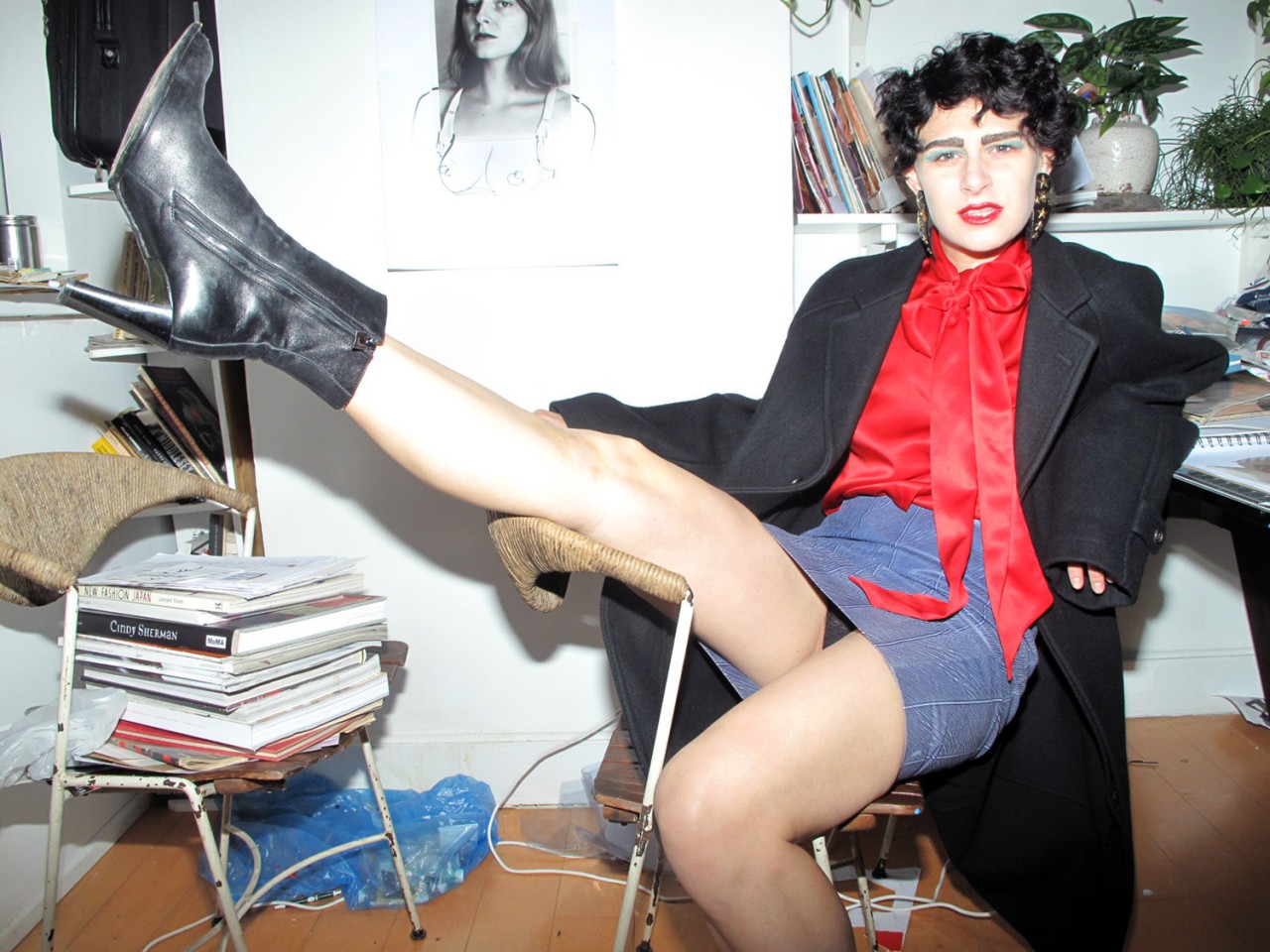
Chu contextualises TERFs within the history of radical feminism starting with Valerie Solanas’ SCUM manifesto and explores how trans women might be one of the most potent examples of feminist praxis.
This was a vision of transsexuality as separatism, an image of how male-to-female gender transition might express not just disidentification with maleness but disaffiliation with men. Here, transition, like revolution, was recast in aesthetic terms, as if transsexual women decided to transition, not to “confirm” some kind of innate gender identity, but because being a man is stupid and boring.
Chu’s prose is fiery and seductive, a real pleasure to read.
She also pushes back on the conceptualisation of transition as ‘becoming who you already are’ and investigates the role of desire in gender.
How can you want to be something you already are? Desire implies deficiency; want implies want. To admit that what makes women like me transsexual is not identity but desire is to admit just how much of transition takes place in the waiting rooms of wanting things, to admit that your breasts may never come in, your voice may never pass, your parents may never call back.
I also enjoyed reading On Hating Men (And Becoming One Anyway) which explores what Chu’s imagining of transition means for folks going the other way; zeroing in on transmasculine people’s place in feminism. Spoiler: it’s messy and beautifully queer.

I really enjoyed/despaired at this bit of writing from The Gauntlet about how mainstream society has accepted formerly fringe beliefs about vaccines and public health.
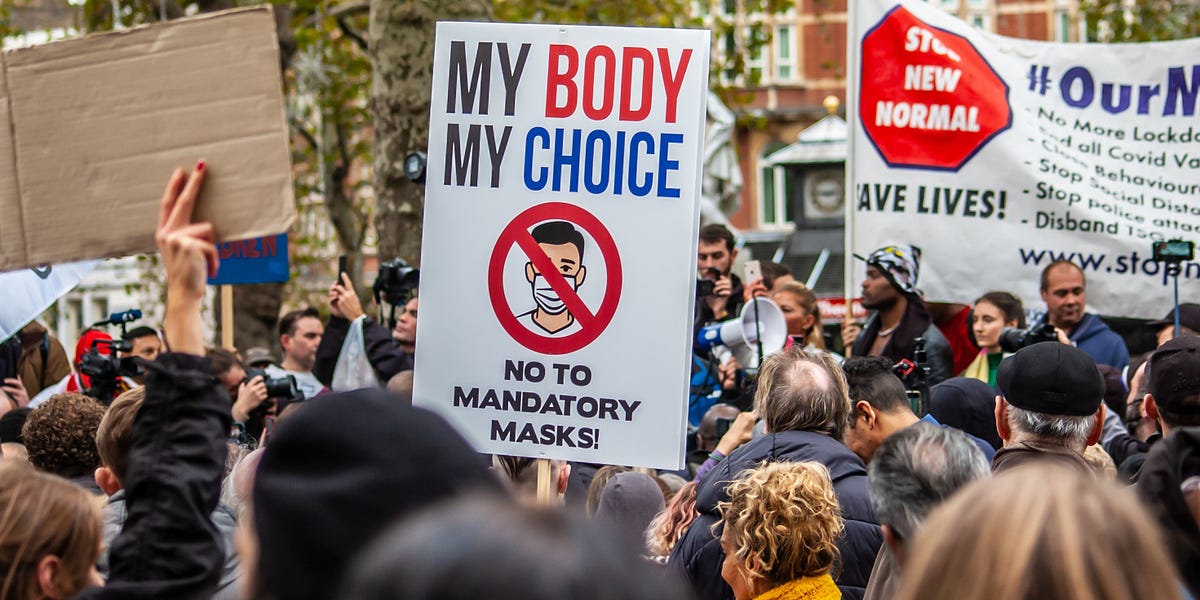
*Liberals in the progressive sense, not the LNP
This was published a year ago and it feels like it’s all gotten worse since there (as has COVID). The cognitive dissonance out there is wild—tell me why during MICF I had two people check if I’m sick because I was wearing a mask, telling me “Oh good, because I really can’t get sick right now.” Of course this was always said to me in the middle of a crowded and poorly ventilated foyer, so the jury’s still out on whether they really wanted to avoid getting sick or not.
Anywho, Doubleday writes about the danger of accepting the logic of the anti-vax movement:
The anti-vax movement has always been eugenicist. The logic goes that, if your kid is healthy, they will not only recover, but build strength from infectious disease exposure. The people who die- well sadly, they just weren’t built for survival. They’re the necessary sacrifices of a stronger collective, weeding out the weak and embracing a Darwinian, survival of the fittest model.
It’s heartbreaking if I think about it too much:
The story of COVID normalization is ultimately a story of breaking solidarity. We went from embracing a social model of public health that prioritized the safety of vulnerable people as the greatest priority, to one that explicitly denies them safety and promotes harming them. In essence, public health itself, the concept of collectively combatting disease for the collective benefit of all, is what we’ve lost.
Stay safe out there, my loves.

- Love/hated this interview with the creator of Andor. Tony Gilroy yaps about the role of empathy in good art to a conservative commentator who infuriatingly doesn’t get it. If the NYT paywall is giving you trouble, try this.
- A friend sent me this bit of writing about gender-based oppression in response to a conversation we had where I flippantly suggested being fat is a de-gendering of sorts.
- Here’s a collection of anecdotes about Skype made in response to Skype shutting down. It put me on to this interesting Skype-based performance by Rimini Protokoll from 2008(!).
- This was a lovely profile of the way performers in Kharkiv are continuing to make and stage work 30km from the front with Russia.
- Apple has unveiled a new design language for their software. This accessibility expert responds to criticism of the new design, pointing out how accessibility is only ever brought up when useful to support an argument.
- It turns out influencers are really important to getting bums on seats on Broadway.
- Public institutions don’t know how to deal with artists who talk about Gaza.
- Good news re: HIV eradication? You love to see it.

Last weekend we had the first reading for the Fringe show I’m producing. It was really lovely to get everyone in the room and see that the show is even better than I remembered. I’m a little worried about the extensive props list and how we’ll navigate that in a Fringe context BUT I’m sure it’ll come together with some work.
Today I applied for a program designed for indie producers which looks very exciting but also very competitive so we’ll see how that goes. Plus, spent the morning in two (2!) job interviews for arts admin roles. Manifesting everything comes together for me. 🤞

I’ve decided it might be fun to end these newsletters with a question of the week. It could be corny, or it could be a radical re-configuring of the reader/writer relationship. Who’s to say?
This week I’m wondering what you think about social media and its place for news and art. There’s not great news about the way women interact with the news, that plus the endless litany of bullsh*t from Meta makes me pretty exhausted on the subject. But then in contrast looking at work from artists like Jackie Liu and the HTML Review makes me think that there might be a way of using digital platforms to play host to genuinely good and subversive art. Or maybe we should we just be deleting our IGs and reverting to printed newspapers.
What do you think? Social media, salvageable or no?
To leave a comment and support my writing, consider subscribing. You’ll get a weekly round-up of the art I’m making, seeing, & reading delivered straight to your inbox—just like this one.




